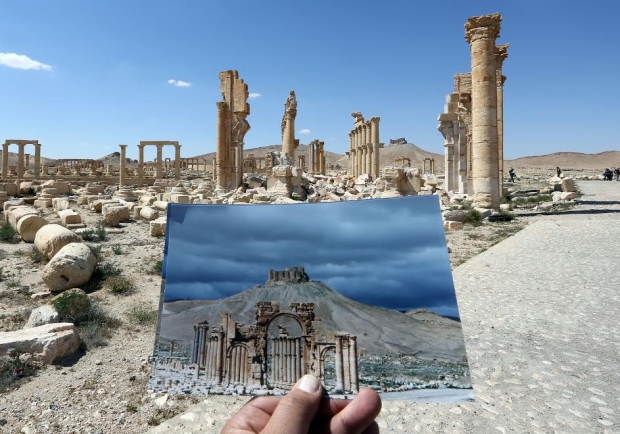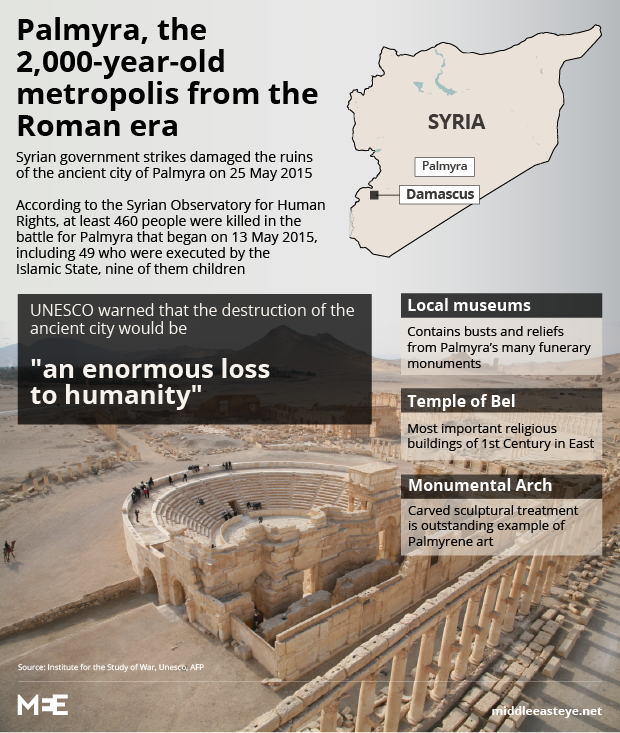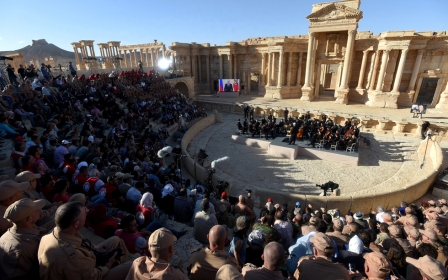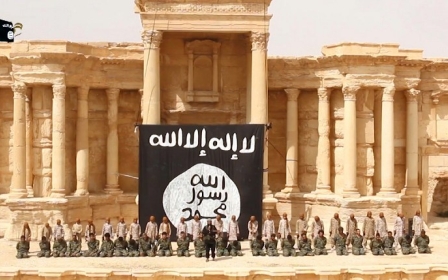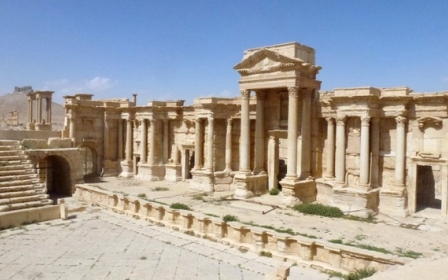Syrian army troops battle IS inside Palmyra
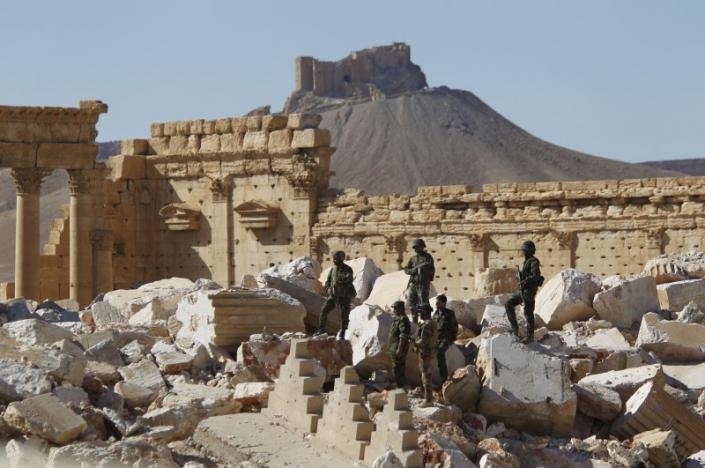
Syrian troops have pushed into Palmyra as they battle to retake the iconic city from the Islamic State group, but their advance was slowed Thursday by landmines laid by the retreating militants.
Bolstered by Russian air strikes and ground troops, Syrian government forces have been battling through the desert of central Syria for weeks to reach Palmyra.
The city has traded hands several times during Syria's civil war, and become a symbol of IS's wanton destruction of cultural heritage in areas under its control.
The group first seized Palmyra in May 2015 and began to systematically destroy and loot the UNESCO world heritage site's monuments and temples.
IS fighters were driven out in March 2016 but recaptured the town last December.
The latest offensive to retake the city saw government forces break through its western limits late on Wednesday, forcing IS fighters to retreat into eastern districts, according to the Syrian Observatory for Human Rights, a Britain-based monitor.
"IS withdrew from most of Palmyra after laying mines across the city. There are still suicide bombers left in the eastern neighbourhoods," Observatory head Rami Abdel Rahman told AFP on Thursday.
"Government forces have not yet been able to enter the heart of the city or the eastern parts," he added.
They have also not yet entered the celebrated ruins that make up the southwestern part of the city.
"There are no IS fighters left in most of the Old City, but it is heavily mined," Abdel Rahman said.
Syria's al-Watan daily, which is close to the government, reported Thursday that the army had "penetrated Palmyra from the south and southwest, after seizing all fields and hilltops around the city."
Sputtering peace talks
Before IS first entered the city, Palmyra boasted temples, colonnaded alleys and elaborately decorated tombs that were among the best preserved classical monuments in the Middle East.
But many of the monuments have been destroyed, and much of the heritage looted for sale on the black market.
Moscow's support has been key in the Syrian army's push towards Palmyra, and its warplanes continued to bombard IS positions inside and near the city on Thursday, the Observatory reported.
A decades-old ally of Damascus, Russia began an aerial campaign in September 2015 to help President Bashar al-Assad's forces in their fight against what the regime and its allies say are "terrorists."
This week, Moscow called for "terrorism" to be added to the agenda of UN-sponsored peace talks in Geneva between Syria's opposition and government figures.
The sputtering negotiations so far have focused on three so-called "baskets": governance, the constitution, and elections.
But the main opposition group - after an unprecedented meeting with a Russian minister - said late on Wednesday that it would refuse to add terrorism to the areas of discussion.
"We will not deal with it, and if [UN mediator Staffan de Mistura] adds it in any time we will not deal with it or discuss it," said Yehya Kodmani of the High Negotiations Committee (HNC).
The opposition has accused Assad's regime of wanting to turn the focus to terrorism as a distraction from political questions.
The Geneva talks, the fourth round of UN-sponsored negotiations in the six-year war, are expected to end before or during the coming weekend, though no formal time frame has been set.
Syria's conflict began in March 2011 with protests against Assad's rule, but has since evolved into a complex war that has drawn in world powers on all sides of the conflict.
New MEE newsletter: Jerusalem Dispatch
Sign up to get the latest insights and analysis on Israel-Palestine, alongside Turkey Unpacked and other MEE newsletters
Middle East Eye delivers independent and unrivalled coverage and analysis of the Middle East, North Africa and beyond. To learn more about republishing this content and the associated fees, please fill out this form. More about MEE can be found here.


